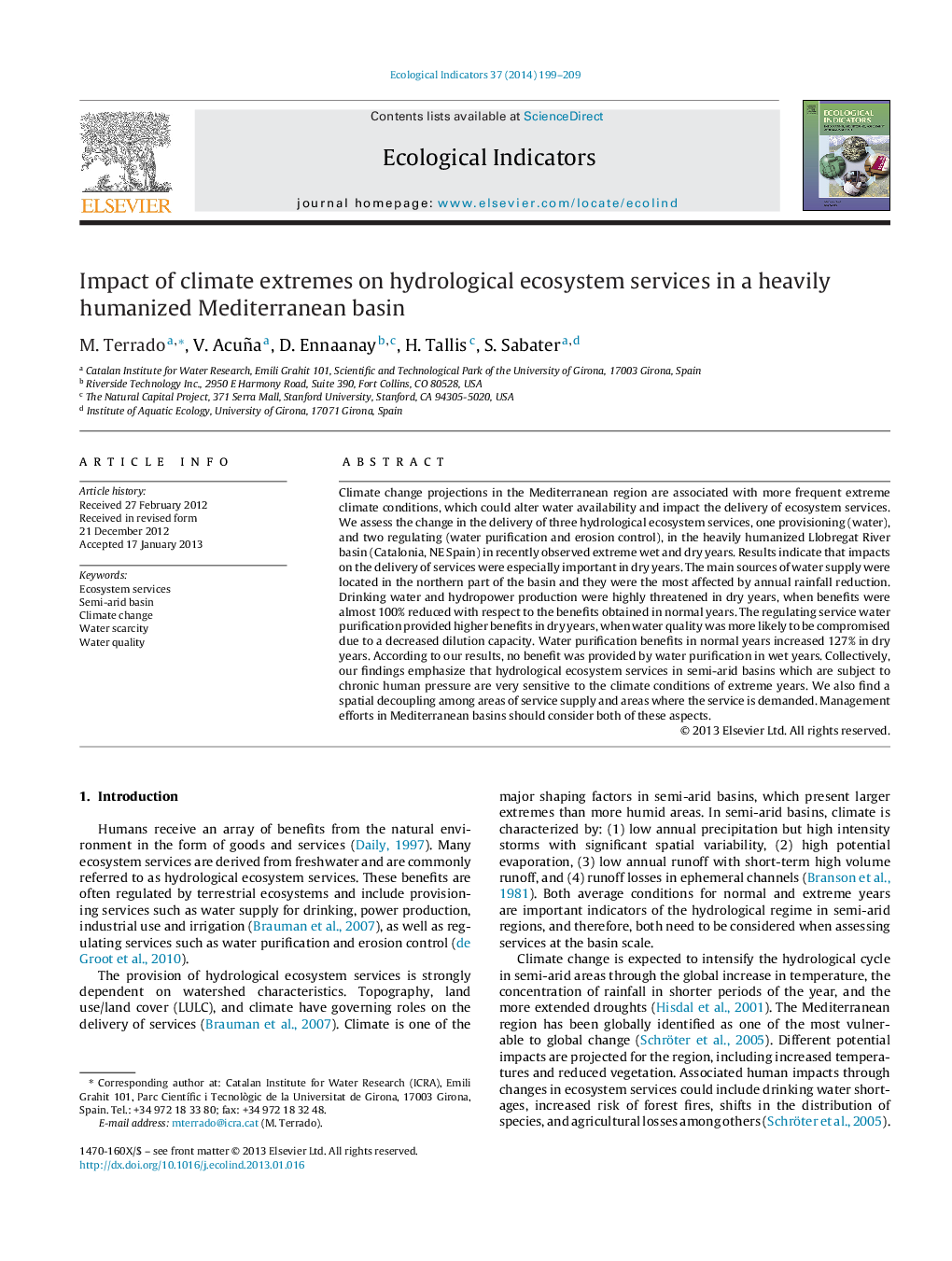| Article ID | Journal | Published Year | Pages | File Type |
|---|---|---|---|---|
| 4373265 | Ecological Indicators | 2014 | 11 Pages |
Climate change projections in the Mediterranean region are associated with more frequent extreme climate conditions, which could alter water availability and impact the delivery of ecosystem services. We assess the change in the delivery of three hydrological ecosystem services, one provisioning (water), and two regulating (water purification and erosion control), in the heavily humanized Llobregat River basin (Catalonia, NE Spain) in recently observed extreme wet and dry years. Results indicate that impacts on the delivery of services were especially important in dry years. The main sources of water supply were located in the northern part of the basin and they were the most affected by annual rainfall reduction. Drinking water and hydropower production were highly threatened in dry years, when benefits were almost 100% reduced with respect to the benefits obtained in normal years. The regulating service water purification provided higher benefits in dry years, when water quality was more likely to be compromised due to a decreased dilution capacity. Water purification benefits in normal years increased 127% in dry years. According to our results, no benefit was provided by water purification in wet years. Collectively, our findings emphasize that hydrological ecosystem services in semi-arid basins which are subject to chronic human pressure are very sensitive to the climate conditions of extreme years. We also find a spatial decoupling among areas of service supply and areas where the service is demanded. Management efforts in Mediterranean basins should consider both of these aspects.
